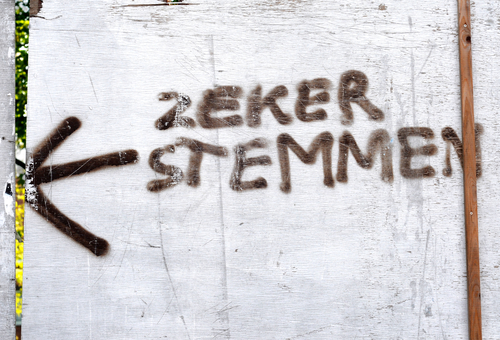D66 kicks off election campaign with education overhaul

 D66 launched its election campaign on Wednesday with plans for sweeping changes to the education system.
D66 launched its election campaign on Wednesday with plans for sweeping changes to the education system.
The party said it wanted to reduce inequality through measures such as free nursery care and broad, mixed-ability classes until the age of 14, the Volkskrant reported.
The plans, which also include hot school meals and ‘a learning environment rich in sports and culture’ for all children up to 18, would put an end to the current system in which children are streamed into different types of education at 12 based on the teacher’s assessment and a test.
Some 54% of 12-year-olds currently go to vmbo schools, while 22% are in pre-university streams (VWO) and 24% in pre-college streams (HAVO).
The abolition of the final school test and postponed streaming will promote a better educational fit for children, D66 education spokesman and former teacher Paul van Meenen told the paper, and assess children on their abilities and not on what they can’t do. ‘The idea that your worst subject determines your educational level is ridiculous,’ he said.
School inspectors had earlier warned of the ‘unacceptable’ inequality in Dutch education because children of well-educated parents score better in final primary school exams than children of equal intelligence from more disadvantaged backgrounds.
Illiteracy concern
Van Meenen and D66 parliamentary party leader Rob Jetten, who went on a fact-finding mission to dozens of schools, said they had been shocked to find that a quarter of all 15-year-olds is functionally illiterate.
‘That is double the number of ten years ago. It is unacceptable we are letting this happen and it clearly shows how necessary our plans are,’ Van Meenen told the paper.
The position of teachers, too, has been revised under the plans, with salaries in primary education on a par with the those in secondary schools.
Under the new system schools would be financed directly instead of via central educational bodies. Schools would also play a central role in the local community with many neighbourhood-related activities taking place there. Each school would also have a specialised care team.
‘Educational reform has been neglected for a very long time because teachers’ salaries dominated the agenda, and rightly so, Rob Jetten told the paper. ‘But if you want pupils to concentrate during lessons you have to ask yourself what it is you should offer a child at a school, which is effectively its second home? A hot lunch, for instance, instead of last night’s chips in the lunch box.’
Apart from free nursery care, organised after-school activities would also be free under the plans. D66 has already calculated that free nursery care would cost an extra €8bn citing a rise in pollution tax and wealth tax as possible ways of financing the measure.
Thank you for donating to DutchNews.nl.
We could not provide the Dutch News service, and keep it free of charge, without the generous support of our readers. Your donations allow us to report on issues you tell us matter, and provide you with a summary of the most important Dutch news each day.
Make a donation